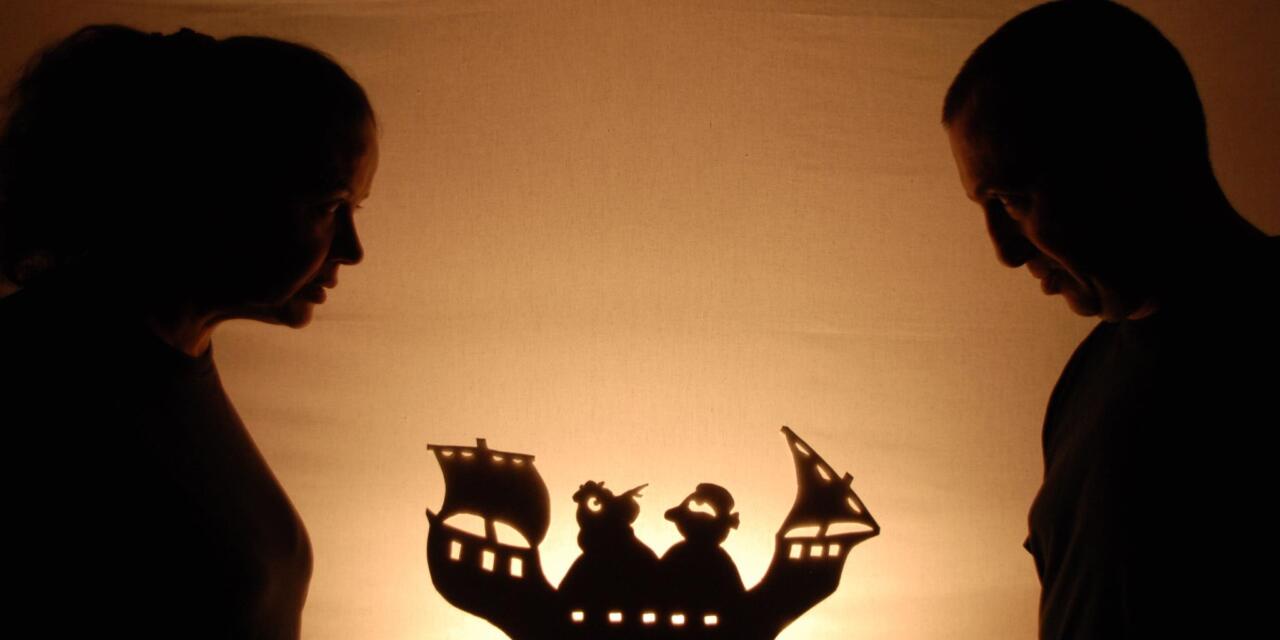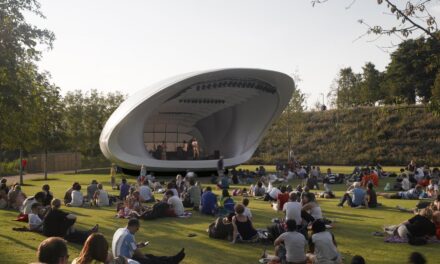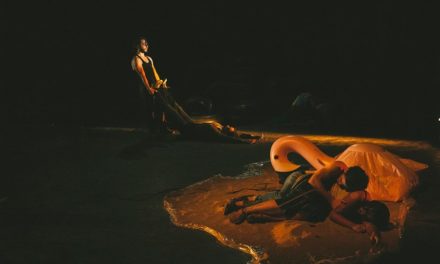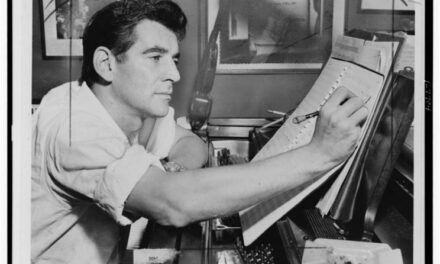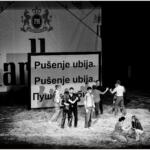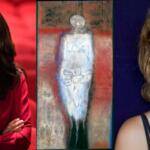TiyatroTem (2001-2017) was established by Şehsuvar Aktaş (b. 1964) and Ayşe Selen (1955-2017) in 2000, and their first play, Lahana Sarma (Cabbage Rolls) premiered in 2001. This is the first study that traces how their aesthetics influenced the emerging theatre artists of 2010s, and what they proposed as frontiers two decades ago slowly became a popular form of independent theatre. Their use of metatheatricality in their dramaturgies, and their experimentation with acting through blending institutionalized Western styles of acting and Ottoman traditional comedic forms, created a slow-burning paradigm shift over the years.
When contextualizing TiyatroTem, it is important to understand through which influences they created their own aesthetics. Both Ayşe Selen and Şehsuvar Aktaş earned their Bachelor’s, Master’s, and Doctoral degrees at the nationally notable Theatre Department in the Faculty of Language, History, and Geography at Ankara University during the 1980s. They worked under the supervision and mentorship of such influential professors as Nurhan Karadağ and Metin And, who both tried to start an indigenous theatre scene in Türkiye through different pedagogical and theatrical experiments. Later, both Ayşe Selen and Şehsuvar Aktaş worked in various theatre departments in Türkiye as faculty members for brief periods. Ayşe Selen was fluent in German and Şehsuvar Aktaş in French, and they actively worked as translators throughout their careers. This is very important since German and French theatre traditions are the foundational Western theatre traditions that have influenced contemporary Turkish theatre.
Looking into the roots of TiyatroTem, one must also underline that Ayşe Selen worked in Devekuşu Kabare [En: Ostritch Cabaret] as an actor between 1982 and 1986, which was initially founded by the influential playwright Haldun Taner. Ayşe Selen met the famous playwright and interviewed him extensively for her 1985 MA thesis. This also provides a solid idea about which school of contemporary Turkish theatre tradition TiyatroTem felt close to. Haldun Taner was a pioneer of the Brechtian school of dramaturgy and successfully synthesized traditional Ottoman performance techniques and epic theatre style in his plays to create a popular and left-leaning people’s theatre. Şehsuvar Aktaş also mentions that the description of their work as exploring the “frontiers” is out of context and untrue, because of their organic and intellectual bond to the lineage of performance styles indigenous to Türkiye. To explain the negative reaction of Aktaş to the adjective ‘avant-garde’ to define their work, perhaps it might be useful to understand the influence of Alfred Jarry on the group’s work, and significantly their reasoning behind why Jarry was so influential for them. Jarry, a playwright who was inspired by French medieval texts such as Gargantua and Pantagruel by François Rabelais to rebel against the early twentieth-century bourgeois naturalism on French stages, offered a model of engagement with the Ottoman comedic tradition for TiyatroTem.
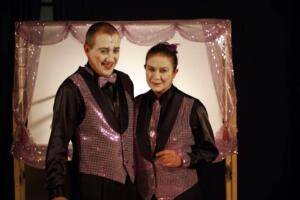
Gündüz Niyetine (En: Mutual Dreams). Premiered in 2013 by TiyatroTem. Performers: Ayşe Selen and Şehsuar Aktaş. Photographers of the performance: Behiç Alp Aytekin and İlyas Kaya.
Therefore, Selen-Aktaş couple were PhD level educated in theatre, native level fluent in two deeply important European languages for Turkish theatre history, and had received their education from influential theatre professors whose central artistic vision was to suggest new ways of using tradition on the contemporary stage, and had first-hand experience with the previous theatre generation’s trials and errors about suggesting local dramaturgies. Most importantly, they had already been devising theatre together for a long time before they established TiyatroTem. This is how TiyatroTem was established as an independent small theatre company and laboratory of dramaturgy, where they worked on the dramaturgical questions that they wished to investigate for extended periods of time. Through their approximately two decades of practice, TiyatroTem has collaborated with many younger theatre artists as equals and provided them with rare opportunities for artistic development and mentorship. For example, in Sezo’nun Kabusu [En: Sezo’s Nightmare], they worked with actor Sezin Bozacı from Semaver Kumpanya[1], reaching out to a wider network of performance circles who think through similar dramaturgical issues. TiyatroTem, through their working years, also held open rehearsals at the last phases of their productions and openly informed interested young theatre artists about their work processes which informed many younger artists. Their hybridized dramaturgy and decolonizing metatheatricality informed and influenced the current generation of mid-career theatre makers in Türkiye, which created a new wave of theatre-making that has the potential to radically re-ground the medium in Türkiye as a local and contemporary art form.
Even though TiyatroTem’s two decades-long work never became a commercial success, and the two collaborators, Şehsuvar Aktaş and Ayşe Selen, have never become celebrities in the conventional sense, they have influenced the following theatre generation in Türkiye through their suggestion of another style of theatre making. When we take a look into the profound influence of TiyatroTem on the new generation of theatre makers, it is evident that they created their own wave. When Şehsuvar Aktaş reflected on this phenomenon, he said:
For example, today Authentic Gala [2009-2012 repertoire play of TiyatroTem] is important because, now I understand better, in the last few years narrative performances have increased significantly and some of them were very successful. The people who wrote them and crafted them, such as Şamil Yılmaz, or Murat Mahmutyazıcıoğlu used to tell us, “We have seen this for the first time in Authentic Gala and we were surprised and influenced and this is where it comes from”. In that manner the play had an impact that we haven’t calculated. (Aktaş 2019)
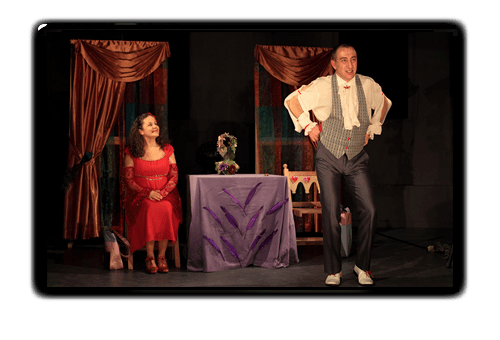
Hakiki Gala (Authentic Gala) by TiyatroTem. Written by Ayşe Bayramoğlu. Directed by Çetin Sarıkartal. Performed by Ayşe Selen and Şehsuvar Aktaş. Premiered in 2009. Photographer of the performance: Behiç Alp Aytekin.
I have also heard very similar declarations on the influence of TiyatroTem on her work from the prominent playwright Firuze Engin during my interview with her (Başar 2021, 362-3), along with similar comments from the prominent director Doğu Akal (Başar 2021, 335-footnote 915 & 359). Now-established playwrights like Volkan Çıkıntoğlu, and today’s influential groups like Tiyatro Hemhal (established by Nezaket Erden, Hakan Emre Ünal and Ayşe Draz) also have significant continuities with the style that TiyatroTem developed. TiyatroTem’s works, particularly the premise of the narrative mode in their plays, which is the premise that a play can be constructed metatheatrically through bleding Ottoman performance techniques with conventional and globalized modes of Western theatre, had a serious impact on young theatre makers of Türkiye, which today have established a new dramaturgical school in the country.
Resources
Reworked from:
Başar, Deniz. “7.1. TiyatroTem – Telling the World on Stage”. A Dismissed Heritage:
Contemporary Performance in Turkey Defined through Karagöz. 2021. Concordia University (Montreal, QC, Canada). PhD thesis. pp. 327-361.
http://www.tiyatrotem.com/en/
For a complementary piece to this article, see this upcoming article:
Başar, Deniz.“Telling the World on Stage: Tradition as Metatheatricality in Contemporary Turkish Theatre in the 21st Century”. Decolonizing Dramaturgy in Global Contexts. Magda Romanska, Taiwo Afolabi, Kee-Yoon Nahm, Marjan Moosavi, Jimmy A. Noriega (eds.). Bloomsbury. 2025.
References:
Aktaş, Şehsuvar. December 24, 2019. Interview by the author. Beşiktaş, İstanbul, Türkiye.
Günekan, Melis. Shakespeare and Authority: The Intersection of Theatre, Locality and Politics in Turkey. PhD dissertation. Boğaziçi University. İstanbul, Türkiye. 2021.
[1]“The company [Semaver Kumpanya] is located in Kocamustafapaşa, a historic and impoverished neighbourhood in Istanbul that is surrounded by the Byzantine walls. Since its establishment, the company … Continue reading
This post was written by the author in their personal capacity.The opinions expressed in this article are the author’s own and do not reflect the view of The Theatre Times, their staff or collaborators.
This post was written by Deniz Bașar.
The views expressed here belong to the author and do not necessarily reflect our views and opinions.
Notes
| ↑1 | “The company [Semaver Kumpanya] is located in Kocamustafapaşa, a historic and impoverished neighbourhood in Istanbul that is surrounded by the Byzantine walls. Since its establishment, the company has staged its productions at Çevre Tiyatrosu, a theatre venue built in Kocamustafapaşa in 1972. The venue has hosted diverse theatre companies and events since then, and became a permanent playhouse for Semaver Kumpanya in 2002. Established by the acclaimed theatre director Işıl Kasapoğlu [b. 1954] in 2002, the company was built with the explicit purpose of having a “theatre practice on the other side of the Golden Horn”. Kasapoğlu studied theatre at the Sorbonne University, and became an acclaimed theatre director over the course of his career, working intermittently in both France and Turkey, winning many awards, and establishing several theatre companies including Semaver Kumpanya.” (Günekan, 2021, 146) Sezin Bozacı (b. 1977) is one of the members of the first generation of the ensemble cast of Semaver Kumpanya. She is a successful stage and camera actor, and an acting coach in the courses provided in Semaver Kumpanya. |
|---|

